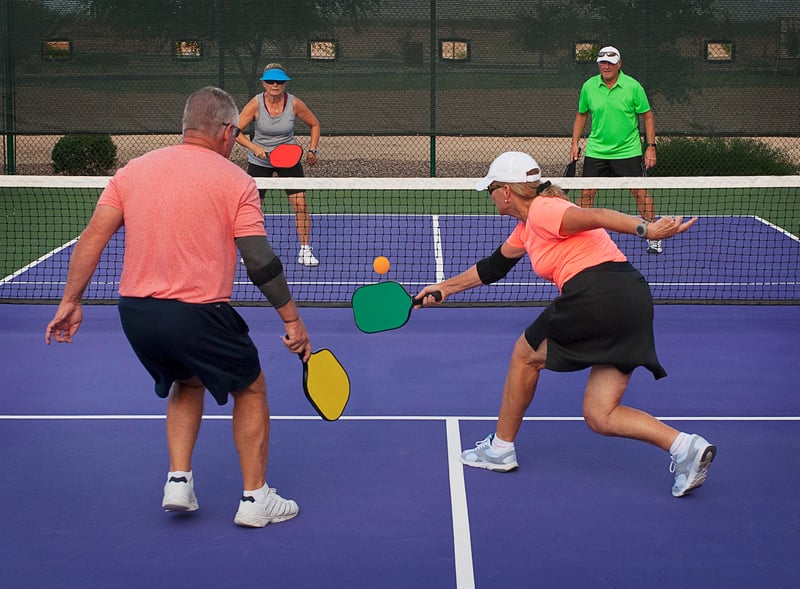Get Healthy!

- Posted July 4, 2023
As Pickleball's Popularity Rises, So Do Related Injuries
Pickleball has burst onto the scene, inspiring people of all ages to pick up a paddle.
But as with any sport, it's possible to get hurt. Some best practices can help prevent injuries, according to a sports medicine expert.
For pickleball players, the most common injury is to the rotator cuff tendon in the shoulder.
This can cause shoulder pain, especially with movement and use. Problems range from tendonitis and bursitis to a tear of the tendon itself. Bigger tears can create weakness. Someone might not be able to use their arm.
“The unfortunate reality of the rotator cuff is that everyday use can cause tearing and damage,” said Dr. Bruce Moseley, an orthopedic surgeon from Baylor College of Medicine in Houston. “You don't necessarily have to do anything wrong or abnormal to get a rotator cuff tear -- in many instances it just happens as a consequence of living.”
Most adults who use their shoulders are at risk. For many people, rotator cuff damage appears over time.
In pickleball, reaching overhead requires a lot of force from this tendon, which can worsen rotator cuff injuries.
These tears are not preventable. But the shoulder does better when it's flexible and strong. Moseley suggests stretching and doing light to moderate strengthening.
“If you warm up and stretch before your activity and ice down afterwards, your shoulder will be better prepared for the activity and will recover quicker,” he said in a college news release.
Surgery is the only way to treat a torn rotator cuff. The alternative is living with it, which can be both painful and limiting.
As the tear enlarges, it can also become more difficult to repair. Even though small tears may not cause many symptoms, they are persistent and can progress to massive.
“The success rate of surgery to permanently fix the problem goes down as the size of the tear goes up, so if you're having lingering shoulder pain that isn't getting better over time and the pain is getting worse as the activity continues, I recommended seeing a specialist,” Moseley said. “If we can get to the tear and fix it while it is small, the success rate is much higher.”
Other injuries can include tears to the meniscus, the connective tissue between the knee bones; and tendon ruptures. Pickleball can also aggravate arthritic knees.
Avoid these injuries by warming up and icing down after pickleball, Moseley suggested.
When warming up, you should sweat lightly. A brisk walk, jog or cycling can be enough.
Stretch your shoulders, lower back, leg muscles and joints to try to get them as flexible as possible.
Apply ice for 20 minutes on any body part that is achy or sore, Moseley said. Recover completely before playing again.
Over-the-counter pain medications, such as Advil, Aleve or Tylenol, can also help.
“Considering seeing a physician if you have pain that gets progressively worse in the shoulder or pain that persists for a long time after your activity," Moseley said. "These may be warning signs of a torn rotator cuff tendon, so make sure to get it checked.”
More information
The American Academy of Orthopaedic Surgeons has more on rotator cuff injury.
SOURCE: Baylor College of Medicine, news release, June 29, 2023

